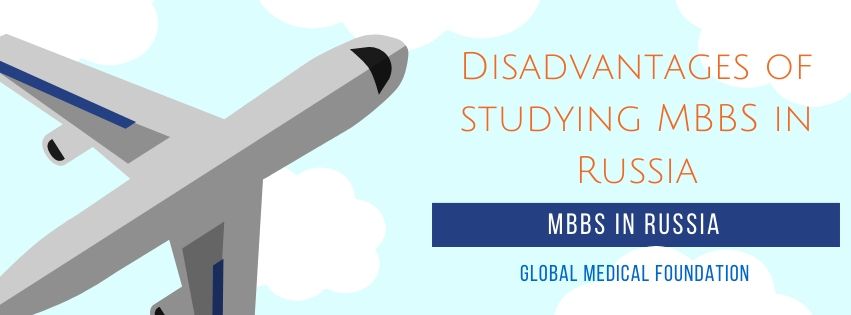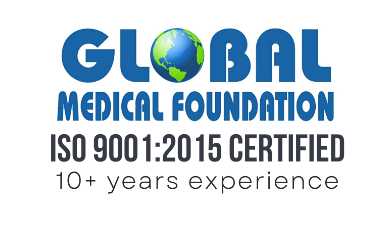Disadvantages of studying MBBS in Russia

Russia is the leading country for Indian students pursuing medical degrees. While it offers numerous advantages making it a popular choice, it’s not without challenges.
Many disadvantages stem from a student’s inability to adapt to the new environment. One significant concern is that some universities don’t have good or experienced English teaching faculty. We will discuss all the disadvantages below:
Here are the disadvantages of studying MBBS in Russia:
Table of Contents
Difficult in Adjusting to Cold Climate
For Indian students who are used to the tropical climate of India, adjusting to Russia’s harsh winters is a significant challenge. Here are some key difficulties:
1. Extreme Temperatures:
- Sub-zero temperatures: Temperatures in many Russian cities will drop below zero degrees for several months. This is a big change from India’s warm climate. It gets tough as students will have to travel to their classes which starts at 8 am and they have to travel in freezing temperatures.
- Wind chill: Cold winds can make temperatures feel even colder, increasing the risk of frostbite. Sometimes, the cold wind makes even zero degrees feel like minus ten dgeree.
2. Lack of Sunlight:
- Short days: The days in Russia are significantly shorter during winter, leading to less exposure to sunlight.
- Seasonal affective disorder (SAD): The lack of sunlight can contribute to mood disorders like SAD. This is a bigger risk for students who prefer staying alone. Therefore, it is always advised that students do not stay alone while studying abroad.
Despite these challenges, many Indian students successfully adapt to Russia’s cold temperatures. By taking precautions, such as dressing warmly, staying hydrated, and seeking medical attention if necessary, it is possible to enjoy studying MBBS in Russia even during the harshest winters.
Disease Differences Between India and Russia
India and Russia, despite their geographical proximity, experience significant differences in disease prevalence due to several factors:
1. Climate and Geography:
- India: Tropical climate, high humidity, and dense population create ideal conditions for vector-borne diseases like malaria, dengue, and filariasis. Monsoon rains often contribute to outbreaks.
- Russia: Cold climate, vast territory, and lower population density limit the spread of tropical diseases. However, Russia faces challenges with respiratory infections due to its harsh winters and indoor air pollution.
2. Socioeconomic Factors:
- India: Poverty, lack of sanitation, and limited healthcare access contribute to the burden of communicable diseases like tuberculosis, HIV/AIDS, and diarrheal diseases.
- Russia: Higher income levels, better infrastructure, and improved healthcare systems have reduced the prevalence of many infectious diseases. However, chronic diseases like cardiovascular disease, cancer, and diabetes are on the rise.
3. Dietary Habits:
- India: A predominantly vegetarian diet, rich in spices and plant-based foods, may offer some protection against certain diseases. However, malnutrition and micronutrient deficiencies remain significant issues.
- Russia: A diet higher in meat, dairy, and processed foods contributes to a higher risk of cardiovascular disease and obesity.
Key Disease Differences:
- India: Higher rates of malaria, dengue, filariasis, tuberculosis, HIV/AIDS, diarrheal diseases, and malnutrition.
- Russia: Higher rates of cardiovascular disease, cancer, diabetes, and respiratory infections.
Indian students do not get adequate exposure to the more prevalent diseases in India when they study in cold countries like Russia. Therefore MBBS in Georgia, MBBS in Uzbekistan and MBBS in Bangladesh are preferred by Indian students.
Inexperienced Faculty/Bad English
While Russian medical universities offer quality education and are very popular among Indian students, one potential challenge is the experience level of the English teaching faculty. This issue can arise due to several factors:
Language Proficiency:
- Local language dominance: Most Russian professors have a strong command of Russian but may be less proficient in English, especially in medical terminology.
- Dialect variations: Even among English-speaking faculty, the accent hinders effective communication with Indian students.
- Limited teaching experience: Some faculty members may have limited experience teaching English as a second language, which can impact their ability to adapt their teaching methods to the needs of international students. This is a major problem in many universities which have only recently started teaching in English. Therefore, you must contact an experienced consultant like the Global Medical Foundation. We will help you select universities from which many batches of Indian students have graduated. Not only this, we will tell you about the universities from which the FMGE passing ratio is high.
Potential Consequences of Inexperienced English Teaching Faculty:
- Communication difficulties: Students may struggle to understand lectures, participate in discussions, or complete assignments due to language barriers.
- Academic challenges: Difficulties in understanding medical terminology and concepts can hinder students’ academic performance.
- Frustration and dissatisfaction: Students may become frustrated and dissatisfied with their learning experience if they feel that they are not receiving adequate support.
Compulsory to Learn the Russian Language
Travelling to a foreign country requires adapting to a new culture. Students in Russian medical universities are taught the local language (Russian) as part of their curriculum. This starts from the 1st semester and goes on till the end of the 3rd year. Those who show interest in the language can develop proficiency, which is beneficial for daily life and hospital interactions. However, students who struggle with Russian may lose confidence and encounter difficulties when communicating with patients.
Learning the local language is even more important now. This is because you need to clear the licensing exam in Russia to satisfy NMC’s FMGL Regulations. The licensing exam in Russia is held in the Russian language.
Uncertainty about total Duration
As per NMC’s FMGL Regulations, you must study for 54 months and do an internship of 1 year while studying MBBS abroad. The internship must be separate from the course which is not the case in Russia. Therefore, the duration can increase from 6 to 7 years. Also, there are many more regulations mentioned by NMC in its FMGL gazette. There is no surety if Russia or any other country is fully satisfying all these regulations. We will get 100% surety in 2027-28 only when the 1st batch which comes under FMGL Regulations graduates and comes back to India.
Homesickness
Being far away from home can lead to feelings of loneliness and homesickness. This is a common disadvantage of leaving home for the 1st time, even if you study in another city in India and it is not limited to Russia. You can feel homesick in any country if you choose to study abroad. Therefore, it is advised that you prepare yourself mentally.
Quality of Education
If you are thinking of studying abroad then Russia is not the No.1 destination when it comes to the performance of students in FMGE. If you check the FMGE passing ratio of Indian graduates from various countries, then you will notice that students who have studied in Georgia and Bangladesh are more successful. Therefore, Russia is not the best destination if you check the FMGE passing ratio.
Even within Russia, the quality of education varies from university to university. Some universities have started their medical programs in recent years. In some, the English medium faculty has just started. Therefore, you must seek expert assistance of the Global Medical Foundation in university selection process. This will help you study from one of the best universities in Russia.
Limited Clinical Exposure
The clinical exposure is not up to the mark in most universities in Russia. You will find better clinical training in Bangladesh and Uzbekistan. Patient interaction is limited and speaking with the patients means that you must be good in Russian language.
Cheating Agents
Students often receive wrong information from agents in India. To avoid this, conduct thorough research and choose consultancies with experience like the Global Medical Foundation.
What next?
Despite the disadvantages of studying MBBS in Russia, it is still the no.1 destination in terms of the number of Indian students going for MBBS abroad. MBBS in Russia is a good option and Indian students have been graduating from Russia for more than 40 years now. The advantages of doing MBBS from Russia outweigh the disadvantages.
However, you can look for excellent alternative options like MBBS in Bangladesh and MBBS in Georgia.
